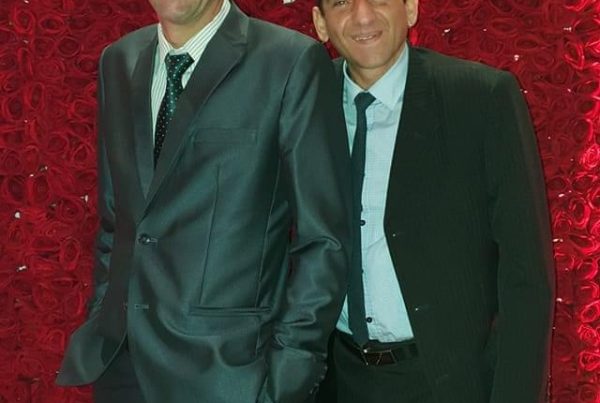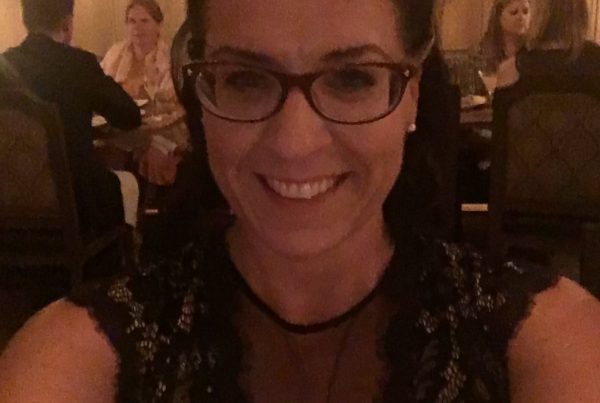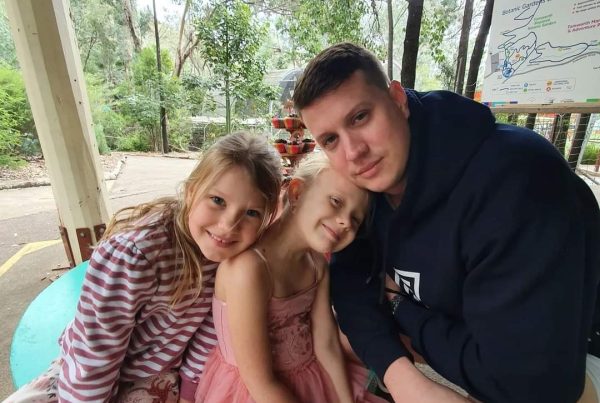By Tom Valenta
Murdoch Children’s Research Institute (MCRI) is the nation’s largest child health research organisation and is ranked globally among the top three for research quality and impact.
Based at The Royal Children’s Hospital in Parkville, MCRI’s team of more than 1,800 researchers works across over 150 common and rare diseases and conditions affecting children including cystic fibrosis (CF).
MCRI’s history began in 1986, when philanthropist Dame Elisabeth Murdoch and genetics pioneer Professor David Danks established the original Murdoch Institute for Research in Birth Defects. Other philanthropists including Sir Jack Brockhoff and the Miller family also supported the establishment. Since then, MCRI has grown from a genetics research institute to a global leader in child health.
Its trail-blazing work in genetics, pioneering discoveries in stem cell medicine and ambitious population health studies are improving the lives of children and their families in Australia and in many parts of the world.
David Danks graduated in medicine at the University of Melbourne in 1954 and became a professor of paediatrics at The Royal Children’s Hospital. However, it soon became clear that his passion lay in clinical genetics. He set up the Genetics Research Unit at The Royal Children’s Hospital in 1967.
MCRI works on the treatment and prevention of childhood conditions. MCRI describes its key research areas as: infection, immunity and global health, stem cell medicine, clinical sciences, genomic medicine and population health.
Its current CF project is exploring the mental health of teenagers with CF to establish a more targeted treatment approach. Mental health issues have been detected in those living with CF at rates two to three times higher than the general population. The first step in this research is exploring the factors that impact mental health in all teenagers. The objective is to help children and young people with CF to live happier, healthier lives.
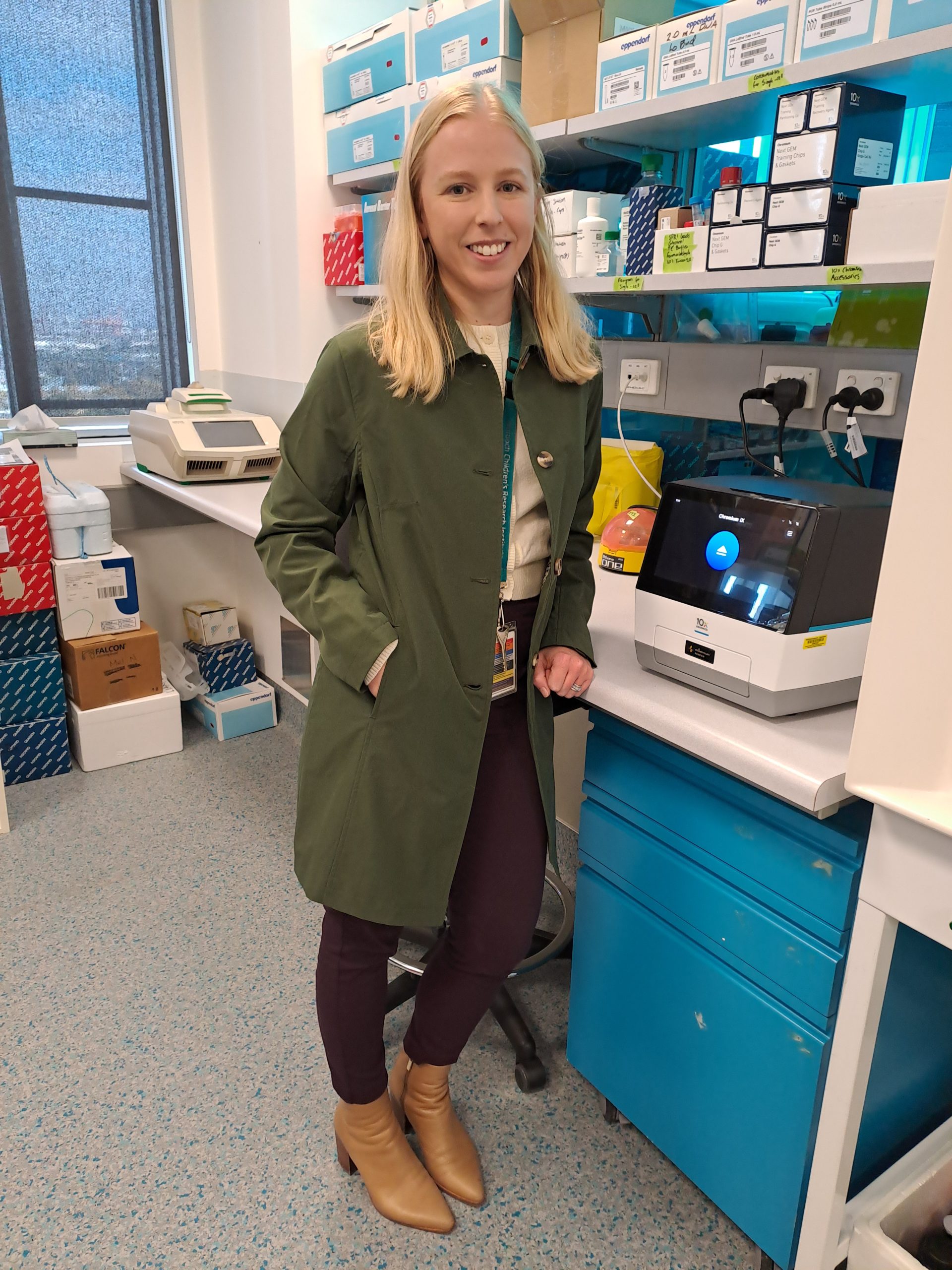
Dr Melanie Neeland and the Chromium X Series instrument.
Over the years, MCRI’s focus has been on the assessment, treatment and prevention of CF lung disease in young children. Having identified that damage to the lung and other organ systems is evident very soon after birth, it believes that by preventing lung disease early in life, individuals with CF will live longer fulfilling lives.
The Australian Respiratory Early Surveillance Team for Cystic Fibrosis (AREST-CF) is a collaboration of specialist paediatric CF centres in Perth and Melbourne with teams across North America and Holland. AREST-CF is internationally recognised for its world-leading research.
Lung failure is the main cause of death for people with CF and in the past, they were not expected to survive into adulthood. Life expectancy has greatly improved with new treatments introduced recently adding to transformative change, but more can be achieved.
The AREST-CF program targets disease prevention after screening detects CF in newborns. This program includes studies aiming to assess the role of the gut and lung microbiome, inflammation and epigenetic markers in CF-related lung disease. Ongoing research aims to significantly delay the age at which patients begin to experience failing lung health. This includes reducing the onset and prevalence of the main disease that causes severe lung damage, bronchiectasis.
Other studies at MCRI focus on inhaled and oral therapies for CF and assessing the impact of CF on cardiovascular health. The research will also evaluate the impact of new CFTR modulators. Future research will also investigate how digital health technology can be used to deliver high-quality, low-burden CF care in the home.
Newly introduced high-tech equipment at MCRI is the Chromium X Series instrument. It allows researchers to examine immune cells at an unprecedented level of resolution – they can study every gene in every cell in any sample and understand its contribution to lung disease.
I was recently privileged to be given a tour of the MCRI by Professor Sarath Ranganathan and Dr Melanie Neeland. To learn first-hand about their work was inspirational. Professor Ranganathan who joined MCRI twenty years ago, is Group Leader and Principal Research Fellow who specialises in respiratory health, including CF. Dr Neeland who joined in 2016, is a Team Leader and Senior Research Officer. My tour was arranged by Tracy Houston, MCRI’s Engagement and Philanthropy Manager.
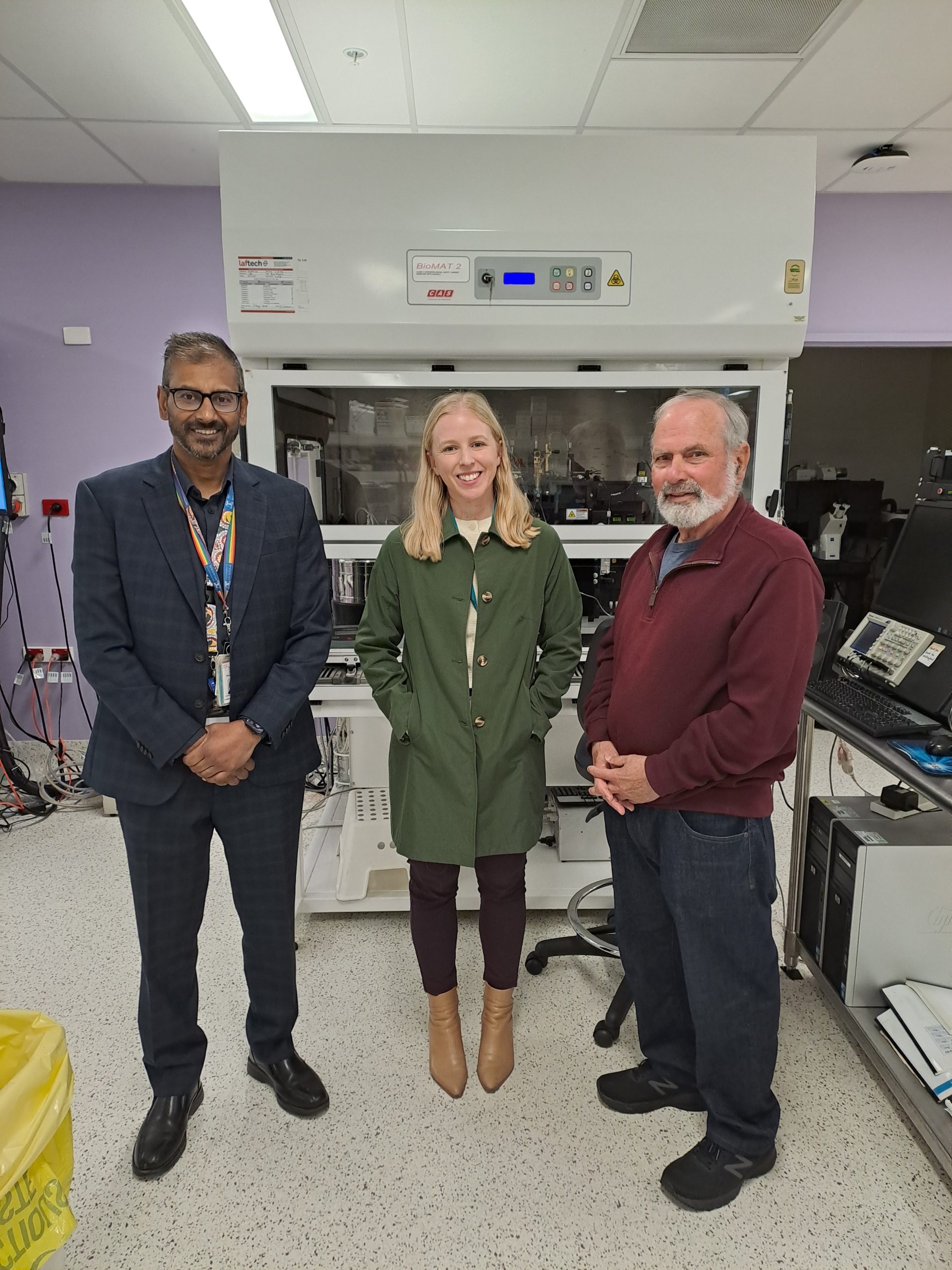
Professor Sarath Ranganathan, Dr Melanie Neeland and Tom Valenta at the MCRI.
About Tom Valenta
A former journalist and public relations consultant, Tom Valenta is an author and advocate. In all, he has written thirteen books of non-fiction covering diverse topics including dementia, cystic fibrosis and alcohol and other drugs.
His work in the dementia and cystic fibrosis fields was inspired by personal experiences – he lost his wife, Marie, to Alzheimer’s disease in 2009 and two of his six grandchildren live with cystic fibrosis. In addition to the books, he has written articles, scripts and has advocated in these areas.
Tom’s book on cystic fibrosis, “Every precious breath: Inspirational stories about living with cystic fibrosis,” was published in 2011. For his work, Tom was awarded an Order of Australia Medal (OAM) on Australia Day, 2019.
The views, experiences or comments shared on this website are not medical advice and may not reflect opinions or beliefs of Cystic Fibrosis Community Care. Always seek the guidance of your doctor or other qualified health professional with any questions regarding your health.
